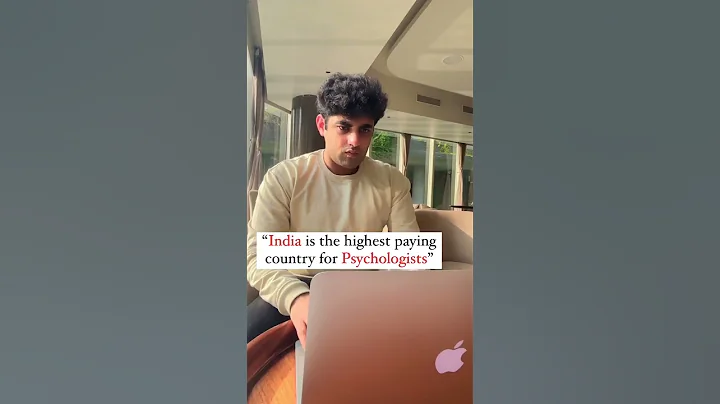Editor's note: Institute of Psychology, Chinese Academy of Sciences PsyCh Journal editor Wang Richu opened a grocery store in the Voice of the Chinese Academy of Sciences, which has a variety of interesting psychology department stores. Everyone is welcome to come and have a look.
I recently went to the dentist again. I am very afraid of going to the dentist (dental phobia, which I wrote about previously). In addition, I haven’t been to the dentist for quite some time, so I became even more nervous when I first entered the clinic. This time it was a female doctor. She must have noticed my nervousness. She whispered to me very gently during the whole process: relax, don't be nervous, just keep it like this, it will be over in a while... They all say "doctor parents" Heart", it really feels like coaxing a child. Under her whisper, although it still hurt when it should, it was soothed and made me less nervous.

(Pictures from the Internet)
The pleasure brought by whispering is difficult to explain clearly, but it makes people feel relaxed and comfortable. This kind of sound that "brings good feelings" is called autonomous sensory meridian response (ASMR). Although this feeling is very common, and many people have experienced it as children, the name was only coined in 2010, and was not named by a psychologist, but by an Internet expert. It originated from netizens' comments about "let... Discussion of "Strange Feelings That Make People Feel Good".
In addition to whispers, soothing music, drizzle hitting the leaves, waves lapping on the coast, and even pencils crossing the paper may bring such feelings. A survey of 475 ASMR forum respondents showed that this feeling is often caused by a numbing sensation in the back of the head, back or shoulders after "being alert", and then feeling relaxed. Some people may also feel that there is "a numbness" in certain parts of the body. Overcharged" feeling. The sounds that bring about this "intracranial orgasm" are all characterized by orderliness, repetition, softness, gentleness, and low volume. Situations that most commonly trigger ASMR include whispers, attention from someone, slow motion, and crisp sounds like nail clipping.
can bring ASMR not only auditory stimulation, but also visual, tactile, and olfactory sensations. ASMR has become popular on video and audio websites many years ago. Many videos and audios are tagged with ASMR, and "whisperers" perform performances to help people relieve anxiety, relax and fall asleep. A few years ago, I liked to watch the "Japanese Knife Craftsman" series before going to bed, which can also be regarded as ASMR videos. The content is that a master chef is preparing seafood sashimi . The video has no narration or music. At most, there are some sounds of running water and gurgling sounds. The picture shows a pair of slightly aged hands handling different ingredients skillfully and calmly. It is said that the most popular ASMR video is of a housewife folding bath towels and talking softly. Experiments have shown that when watching ASMR videos, viewers' breathing and heartbeat slow down and they feel relaxed. There is also evidence that ASMR can relieve chronic pain.
But the exact neural mechanism of ASMR is not yet clear. Some people have found that ASMR may be related to synaesthesia (stimulation of one channel simultaneously causes sensations in other channels), because people who have experienced ASMR experience synesthesia more often. But far more people have experienced synesthesia (less than 5%) than have experienced ASMR (more than 50%). Questionnaire surveys show that people with high openness personality and traits are more likely to experience ASMR. People with high openness tend to be more curious, have a wide range of interests, and are more likely to dream. In addition, people with high neuroticism are more likely to have ASMR experiences, but researchers believe this may be because people with high neuroticism are more likely to use ASMR videos to reduce stress due to anxiety and depression, so they have more ASMR experiences. Others have done research on brain imaging and found that people who have experienced ASMR have weaker functional connectivity in the default network and easier emotional-sensory connections. Other studies have found that when ASMR occurs, reward-related nucleus accumbens activity increases.
However, the variables that can be explained by the above-mentioned studies are not large, or the number of subjects is small, and they are not very convincing. Ideas that I myself am more comfortable with include breathing and mindfulness. Some people believe that these rhythmic sounds can help us breathe evenly and deeply according to the sound, so we feel relaxed.Indeed, the highest state of many movements is "breathing", and the audience will also breathe along with the movements. Others believe that the feeling of relaxation may also come from "mindfulness": focusing on the present moment, ASMR helps us focus on things other than stressors. For example, when the dentist was talking to me, because his voice was very low and he was wearing a mask, I had to pay special attention to hear him. My attention shifted from my mouth to my ears, and it didn’t seem to hurt that much.
Source: PsyCh Journal magazine





















